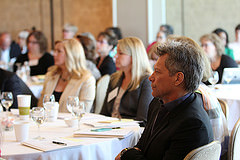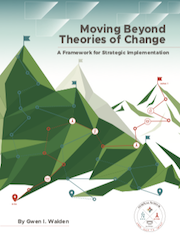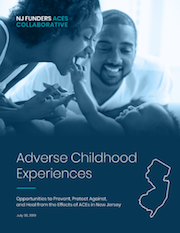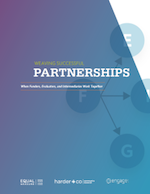Site Search
- resource provided by the Forum Network Knowledgebase.
Search Tip: Search with " " to find exact matches.
A CNJG member queried our listserves with the question "Does anyone have templates that can be used and/or shared related to grant approval letters and terms and conditions related to COVID-19 grants?" CNJG compiled the answers from responding members.
Responding Post Sandy: Philanthropic Relief & Recovery
Superstorm Sandy officially came ashore in New Jersey on October 29, 2012 at 8:00 p.m. and its aftermath continues to be felt in communities throughout our state. Not 24 hours after the storm made landfall, CNJG began planning a series of actions to help inform funders what to be prepared for, share information and discuss strategies. CNJG's support of the philanthropic community as it navigates the shifting landscape of disaster recovery, continues.
CNJG has been working closely with their philanthropic members in New Jersey and their philanthropic colleagues from around the nation who have experience in disaster philanthropy, as well as working cooperatively with the Governor’s Office on Recovery, FEMA, NJ State Police Office of Emergency Management, NJ Voluntary Organizations Active in Disaster, NJ’s Long Term Recovery Group Leaders, and NJ’s leading nonprofit organizations.
Post Sandy Funder Briefings
Beginning one week after Sandy struck New Jersey CNJG launched a weekly conference call series for grantmakers to hear from policymakers, disaster relief/recovery experts and colleagues who have been through similar catastrophes. Grantmakers heard from nearly 70 guest speakers including policymakers, disaster relief and recovery experts, and statewide and national foundation leaders that have experienced similar catastrophes. The briefings provided an opportunity to connect directly with local leaders and state officials addressing the many needs of our communities. Grantmakers learned about issues related to both disasters in general and Sandy recovery in particular. Topics included housing, mental health, social justice, universal design, FEMA’s National Disaster Recovery Framework, and an array of environmental issues. All of the calls were recorded and also transcribed into concise written summaries and are available on our website.
Series 1 ran from November 2012 -- March 2013
Series 1 Audio Recordings
Series 1 Written Summaries
Series 2 ran from September 2013 -- November 2013
Series 2 Audio Recordings
Series 2 Written Summaries
Series 1 & 2 Written Compendium
Funders’ Briefing Post Sandy Recovery at 18 months
 With support from the Jon Bon Jovi Soul Foundation and OceanFirst Foundation, CNJG presented a specific briefing on housing, hunger and mental health recovery efforts and needs 18 months after the storm. We heard personal stories from families that were displaced and their long struggle to rebuild and recoup. We heard insights from service providers on the long term effects of Sandy. Several Long Term Recovery Groups described some of their ongoing challenges, but also shared what was working.
With support from the Jon Bon Jovi Soul Foundation and OceanFirst Foundation, CNJG presented a specific briefing on housing, hunger and mental health recovery efforts and needs 18 months after the storm. We heard personal stories from families that were displaced and their long struggle to rebuild and recoup. We heard insights from service providers on the long term effects of Sandy. Several Long Term Recovery Groups described some of their ongoing challenges, but also shared what was working.
CNJG’s response to Superstorm Sandy also included
Coastal Communities Site Visit Tours
CNJG offered its members a rare opportunity to tour several of the disaster-affected communities in Monmouth and Ocean Counties and to hear from those on-the-ground. Throughout the day, twelve guest speakers representing all areas of the effort, including individuals from FEMA, local and state government, Long Term Recovery Group leaders, city and state planners, environmental professionals, social services personnel, and faith-based leaders, among others spoke to a group of 60 philanthropic leaders. Building upon the first successful Coastal Communities Site Visit Tour, CNJG offered a similar program focusing on communities in northern New Jersey – specifically the hard hit areas in Essex, Hudson and Bergen Counties. In addition to hearing from a wide range of local officials, Long Term Recovery Group Leaders, urban planners, and environmental experts, the site visit included a tour of a PSEG sub-power station which was flooded.
Statewide Conference
Bringing together an incredible community of funders, providers and practitioners for a day of exploration, shared learning and discussion at the Spring 2013 Conference for the Social Sector - Our Shared Road Ahead: Sandy and Beyond on June 10. The Conference provided participants with an important opportunity to hear about the lessons learned by social sector colleagues and experts around the country who have grappled with how to create effective long-term philanthropic responses to catastrophic events in the absence of a readily available guide.
Superstorm Sandy Philanthropic Investments Scan
Philanthropy & Hurricane Sandy: A Report on the Foundation & Corporate Response is a report released in October 2014 by CNJG and partners that examines the response of foundations, corporations, and other institutional donors to the devastation wrought by Hurricane Sandy in October 2012. Numbering nearly 600, these funders have so far committed more than $380 million for relief, recovery and building efforts. The hard data and reflective observations in the report contribute to the growing body of knowledge that helps foundations and corporations be strategic and effective with their giving when disaster strikes.
Two years after the historic storm, this report breaks down the allocation of dollars contributed thus far and offers perspective on the role of private giving in disaster response and lessons to be taken from this one. The report was published by the Foundation Center in partnership with the Council of New Jersey Grantmakers and Philanthropy New York, and with support from the Center for Disaster Philanthropy.
Special thanks to our philanthropic partners that have supported various aspects of the Council’s work beginning immediately after Hurricane Sandy struck through our ongoing work today, including: the Center for Disaster Philanthropy, Citi, Fund for New Jersey, The Henry & Marilyn Taub Foundation, The Horizon Foundation for New Jersey, Hurricane Sandy New Jersey Relief Fund, JCP&L, JPMorgan Chase, Jon Bon Jovi Soul Foundation, The Merck Company Foundation/Merck & Company, Inc., PSEG Foundation, Provident Bank Foundation, Rita Allen Foundation, Subaru, TD Bank, United Way of Essex and West Hudson, Verizon NJ, and the Victoria Foundation.
The Westfield Foundation proudly announces its 2025 Q1 grants, awarding over $120,000 to local organizations that exemplify our commitment to accessibility, equity and strategic partnerships. As we celebrate 50 years of service, we remain dedicated to fostering positive change and strengthening our community through impactful collaborations.
"For five decades, The Westfield Foundation has worked hand-in-hand with local organizations to remove barriers and create opportunities for all," said Katie Darcy, executivedDirector of The Westfield Foundation. "This quarter’s grantees reflect our deep commitment to equity and accessibility, ensuring that individuals of all ages and backgrounds have the resources they need to thrive. We are especially proud to see past grantees collaborating, reinforcing the power of partnership in driving meaningful change."
The New Jersey Historic Trust and the New Jersey State Council on the Arts today announced the FY23 Capital Arts – Historic Locations grant award recipients. This grant opportunity prioritized project proposals that will be used to halt and remediate the physical deterioration of historic locations. There were 13 grants awarded totaling more than $2.6 million, with a maximum award of $250,000.
The FY23 Capital Arts - Historic Locations grant program is presented through a new partnership between the New Jersey State Council on the Arts (Arts Council), a division of the New Jersey Department of State, and the New Jersey Historic Trust (the Trust), affiliated with the Department of Community Affairs. The grant program is designed to assist New Jersey’s nonprofit arts organizations that are operating within buildings that are listed or eligible for listing in the New Jersey Register of Historic Places. Funds may be used for construction expenses related to the preservation, restoration, repair, and expansion to improve or enhance the facility. Grant funding is provided by the Arts Council and reviewed and administered by the Trust.
"Keeping history alive through preservation is key to building generational awareness and providing educational and recreational opportunities," said Lt. Governor Sheila Oliver, who serves as DCA Commissioner. "We are pleased that the New Jersey State Council on the Arts and the New Jersey Historic Trust are combining resources to preserve historic properties, which play a key role in increasing tourism and economic development at both the local and state level."
Calling all funders with interests in the environment, public health, social justice, urban development, and policy! We welcome you to join the Environmental Funders Affinity Group for breakfast and a discussion about one of the most critical funding needs of our time: the intersection of climate justice, public health, and protection of our natural resources for future generations. Please join us at Duke Farms for a light breakfast and an in-person conversation with Chris Daggett, former Commissioner of the N.J. Department of Environmental Protection and former CEO of the Dodge Foundation.
After the meeting, you are welcomed to join a group bike tour of the 20 miles of trails at Duke Farms 2,700 acre environmental center, continue networking at the Terrace Cafe or simply indulge in a bit of self-care on a leisurely nature walk around the Gardens! Fifteen loaner bikes are available on a first come/first serve basis, courtesy of Duke Farms, or bring your own bike.
Chris Daggett is a lifelong New Jerseyan and currently the board chair and interim executive director of the New Jersey Civic Information Consortium. Previously, he served as President and CEO of the Geraldine R. Dodge Foundation from 2010 until 2018. In addition to his career in philanthropy, Chris served in many public-facing roles including Deputy Chief of Staff to Governor Tom Kean, Regional Administrator of the US Environmental Protection Agency, and Commissioner of the New Jersey Department of Environmental Protection. Daggett has also served on and led a number of nonprofit boards.
Cost: Free for CNJG Members; $50 for Non Member Grantmakers.
Join us for an engaging and informative in-person program that explores innovative strategies and real-world solutions for affordable housing. You will have the opportunity to hear from a robust panel including Taiisa Kelly, CEO, Monarch Housing; Julio Coto, Executive Director, Catholic Charities, Diocese of Metuchen; Michael Callahan, Director, Office of Homelessness Prevention, Department of Community Affairs; Alicia Alvarez, Landlord Liaison, NourishNJ; and Lucy Vandenberg, The Schumann Fund for New Jersey. Q & A follows. Gain valuable insights from a dedicated Advisory Committee member who brings lived experience to the discussion, offering a unique and heartfelt perspective on the challenges and successes in affordable housing. Experience firsthand the impact of Monarch Housing’s initiatives of Kilmer Homes, showcasing the design, functionality, and community benefits of this affordable housing project. Enjoy lunch and a networking opportunity with fellow attendees. This event promises to be a thought-provoking and inspiring experience, highlighting how we can collectively work towards more inclusive and sustainable housing solutions. Register now to be a part of the conversation that shapes the future of affordable housing!
Cost: Free for CNJG Members; $50 for Non Member Grantmakers
Continental breakfast and lunch provided.
National Low Income Housing Coalition: The Gap - A Shortage of Affordable Homes
National Low Income Housing Coalition: Out of Reach - The High Cost of Housing
Department of Community Affairs: Fourth Round Page
Monarch Housing Associates: NJCounts - Point-in-Time
This paper explores community democracy as a cultural choice and a potential organizing system for philanthropy using stories that demonstrate its principles and practices, primarily growing from the experience of northern California communities. This experience offers a framework of principles and a beginning set of conclusions about how philanthropy can develop productive partnerships from the perspective of a place-based, community democracy.
Foundation leaders have a unique opportunity to serve as powerful champions of their missions. Partnering with your grantees can amplify your impact. The following guide is designed to help you start having an honest conversation in the boardroom; a conversation about your foundation’s goals, approach, and, most importantly, vision for the future.

Effecting systemic change through philanthropic initiatives requires not only a strategy but a well-constructed implementation plan focused on "people, partners, and platforms.” According to a new report, Moving Beyond Theories of Change: A Framework for Strategic Implementation, philanthropic organizations hoping to achieve impact must align the partners, approaches, and organizational commitments before they begin to design programs, issue Requests for Proposals, or even hire staff. The report further suggests frameworks should include diversity, equity, and inclusion (DEI) efforts and partnerships with intermediaries and donor collaboratives.


This report is designed to inform stakeholders in complex change strategies involving multiple partners, funders, intermediaries, and evaluators. It is framed by a literature review on partnership structures, trust building, and developing a learning culture, and offers case studies of three different partnerships. The report was commissioned by The James Irvine Foundation and collaboratively developed by Equal Measure, Engage R+D, and Harder+Company Community Research.
Case study from Philanthropy New York documenting the formation, challenges and ultimate success of the Education Funders Research Initiative – an unusual funder collaborative that brought together funders for and against charter schools, funders with different views of testing and accountability, and funders with vastly different approaches to supporting education reform to identify and advance shared priorities.
The Executive Director is an employee of the Jewish Community Foundation of Greater Metrowest. In this role, they lead the Grotta Fund’s grantmaking, strategic initiatives, and partnerships to advance its mission. The Executive Director guides the Advisory Council’s priorities, monitors emerging issues affecting older adults, builds collaborative relationships, and supports advocacy aligned with policy and program opportunities in New Jersey.
The Grantmaker Salary and Benefits (GSB) Report is the philanthropic sector's leading source of comprehensive data on U.S. foundation staff, helping organizations of all sizes craft budgets, recruit and retain talent, and set personnel policies. The 2024 GSB Report features salary data for 11,380 full-time staff across 1,006 grantmaking organizations. It includes benchmarking data for 38 distinct positions, staff tenure insights such as departure and turnover rates, demographic information, and more.
If you participated in the 2024 Grantmaker Salary and Benefits Survey, you can access the Council on Foundations’ benchmarking tool on Benchmark Central to run salary, benefits, and demographics comparisons by asset size, grants, geographic location, and grantmaker type.
Members of the Council on Foundations can access the report for free; nonmember price is $549.

